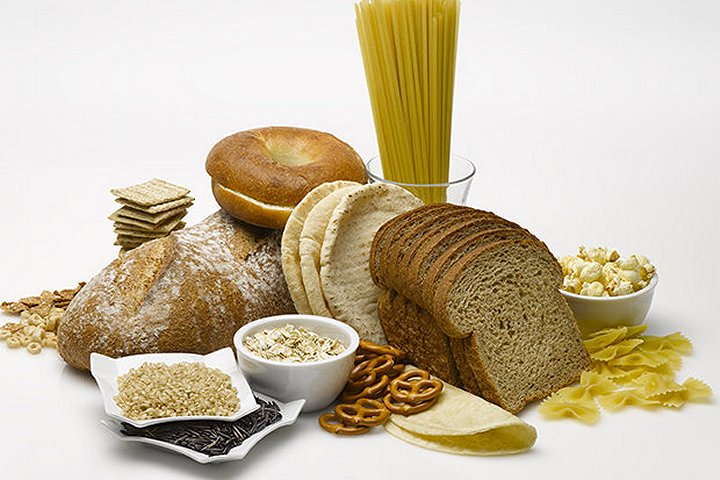Is Gluten Free Good for Everyone?
by TVance | November 29, 2017 7:28 am
These days you will find gluten-free products at just about every grocery store in town. This is of course great news for people who suffer from celiac disease. The problem, however, is it’s the people who don’t suffer from celiac disease who are purchasing gluten-free products.
Is Gluten Free Good for Everyone?
 [1]
[1]
For whatever reasons the gluten-free market is growing bigger and bigger by the day. Hundreds and thousands of consumers believe a gluten-free diet is a healthier diet.
The truth is, it isn’t.
Those suffering from celiac disease have no choice but to consume a diet that is free of gluten. However, for others, those who don’t suffer from celiac disease, eating this type of diet can lead to a deficiency in a host of vitamins and minerals.
Celiac Disease Often Goes Undetected
According to experts, 1 percent of Americans have celiac disease. The sad part is most of them don’t know it. This very serious disease is caused when your immune system has an abnormal response to gluten. The result is usually damage to the lining of the small intestine. When the lining is damaged, important nutrients aren’t able to be properly absorbed.
A few common symptoms of celiac disease include bone pain, dermatitis herpetiformis that is a severe skin rash, anemia, and diarrhea. The problem is celiac disease will often have little to no symptoms. This is why less than 10% of cases are ever diagnosed.
Gluten-Free Diet For Those Who Don’t Have Celiac Disease
Sometimes, even if you don’t have celiac disease, you can have a sensitivity to gluten. If this is the case, a gluten-free diet may be a good option for you. However, if you don’t suffer from celiac disease or have a sensitivity to gluten, eating a gluten-free diet may not be a smart move.
Here’s why.
When you make the choice to eat a gluten-free diet, you are also making the choice to eliminate some very common and nutritious foods from your diet. Gluten is a protein that can be found in rye, barley, and wheat. It can also be found in farro, triticale, spelt, and kamut. Some experts also recommend you avoid oats as well.
Gluten in and of itself has no special nutritional benefits. However, the many foods that contain gluten do. Most of them are rich in fiber, iron, minerals, and a host of vitamins. In other words, they are foods you need to eat to stay healthy. In fact, studies show whole grain foods can help lower one’s risk of type 2 diabetes, heart disease, and certain cancers.
According to the Dietary Guidelines for Americans, half of all the carbohydrates in your diet should come from products that contain whole grain. This can be difficult if you are on a gluten-free diet.
The Risks Associated With A Gluten-Free Diet
When you think of the American diet, you automatically think of wheat. That’s how prevalent it is. If you were to adopt a gluten-free lifestyle, it would mean changing your entire diet. You would literally have to eliminate whole categories of food. Such a dramatic change in diet could lead to several nutritional deficiencies.
In 2005, the American Dietetic Association released a report that warned of the dangers of gluten-free products. Many of them either lack, or are very low in, important nutrients such as calcium, zinc, magnesium, fiber, iron, and B vitamins. Why take such a risk unless you have to?
In order to eat a healthy gluten-free diet, you have to pay constant attention to what’s going in your body. This isn’t something you can do casually. Especially if you have a sensitivity to gluten. Even the smallest amounts can cause serious damage to the small intestines. Therefore, you can’t do an “almost” gluten-free diet. It’s either all or nothing.
Another drawback to going gluten-free is cost. Gluten-free foods can be quite a bit more than conventional foods. A survey conducted by Peter H.R. Green, MD back in 2007 showed that gluten-free pasta and bread cost twice as much as regular pasta and bread.
Here’s the bottom line. If you think you have a problem with gluten, go see your doctor and get tested. If you don’t have a problem with gluten, don’t change your diet to a gluten-free diet. Doing so could open the door to issues you would rather avoid.
For those of you who do have celiac disease or a sensitivity to gluten, do plenty of research so you can make smart food choices.
As with any diet, the key is to eat natural foods. Fruits, vegetables, fish, and lean meats are all safe for people with celiac disease. With so many gluten-free foods now available, you should have no problem maintaining a healthy, gluten-free diet.
- [Image]: https://alternativeresourcesdirectory.com/wp-content/uploads/2017/11/Is-Gluten-Free-Good-for-Everyone.jpg
Source URL: https://alternativeresourcesdirectory.com/news/is-gluten-free-good-for-everyone